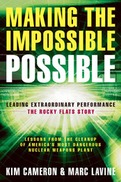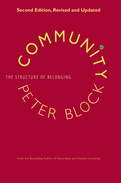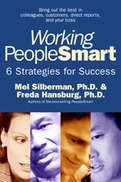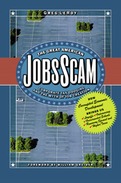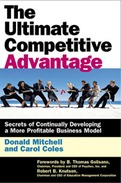
Much networking advice assumes that you need to be an off the chart extrovert to succeed. Nothing could be further from the truth. In this video workshop, Devora Zack proves that real networking means working with – rather than fighting against – your natural personality.
Zack, an avowed introvert and a successful consultant who speaks to thousands of people every year, shatters stereotypes about people who dislike networking. She then provides an innovative, customized system of networking that leverages your own unique strengths.
This video shows you how to forge meaningful, lasting connections in all kinds of situations, not just formal networking events. With the help of engaging exercises, you’ll learn techniques for cultivating your networking “A” game, while remaining true to yourself.
Understand why both introverts and extroverts possess natural skills for networking
Gain a “network survival kit” to survive and thrive at networking events
Discover how the five components of a well-formed goal can help you achieve your networking objectives
Learn how to make a positive first impression and how to end a conversation gracefully
Master methods to host a dynamic networking event
Prepare networking strategies for business trips and conferences
Apply versatile tools to launch and organize a job search
Learn the best approaches to following up with contacts
Devora Zack, CEO of Only Connect Consulting, is a global keynote speaker, consultant, and coach with 100+ clients such as Cornell University, Smithsonian, Australian Institute of Management, U.S. Department of Education, and Mensa. Her books, Singletasking, Networking for People Who Hate Networking, and Managing for People Who Hate Managing, are published in over 25 languages. She has been featured on ABC-TV, Fox Business, USA Today, Wall Street Journal, Forbes, and Fast Company.
- By a coauthor of Developing Management Skills (over 150,000 copies sold)
- Tells the inside story of one of the most astonishing organizational successes of modern times: the shutdown and cleanup of the controversial Rocky Flats nuclear weapons plant
- Identifies specific practices, approaches, and techniques any organization can adopt to achieve extraordinary performance
2018
In this new edition, Block draws on a decade of putting these ideas into practice to emphasize what has worked and extract those thoughts that were nice but had no durability. He explores how technology, instead of bringing us together, has driven us into more isolation. New examples show that community building can be a more powerful way to address social problems than more traditional policies and programs. And encouragingly, Block insists this is really simple, once we decide it is essential. He offers a way of thinking that creates an opening for authentic communities to exist and details what each of us can do to make that happen.
2004
- Offers six easy-to-apply strategies for becoming people-savvy at work, with over 50 examples of the strategies in action
- No complex personality typologies or classification systems to learn-these are universal techniques that work on everyone, and in any situation
- From the authors of PeopleSmart: Developing Your Interpersonal Intelligence
Since 1992, Don Mitchell and Carol Coles have been studying the most successful companies, those whose stock prices continually rose the fastest under the same CEO during the previous three years. They discovered that the most successful companies in this group, unlike their competitors, made major improvements in their business models every two to four years. This was their "secret weapon."
This groundbreaking book draws on the authors' extensive study of hundreds of companies. It offers step-by-step guidance for using the most effective, often-ignored, and least understood techniques for establishing and improving on an industry-leading position through continuous business model improvement. It demonstrates how to use the resources and competitive advantages from each reinvention to establish a foundation for future reinventions. The result is an ever-increasing, customer-delighting, stakeholder-rewarding lead over the competition.
- Shares previously hidden secrets of how any company can improve sales and profit growth faster by using continual business model reinvention
- Enables any business to improve customer benefits, adjust prices to make what it offers more attractive to acquire and use, and reduce costs at a record-setting pace
- Provides dozens of new examples of developing industry leadership by a wide variety of small to large companies



